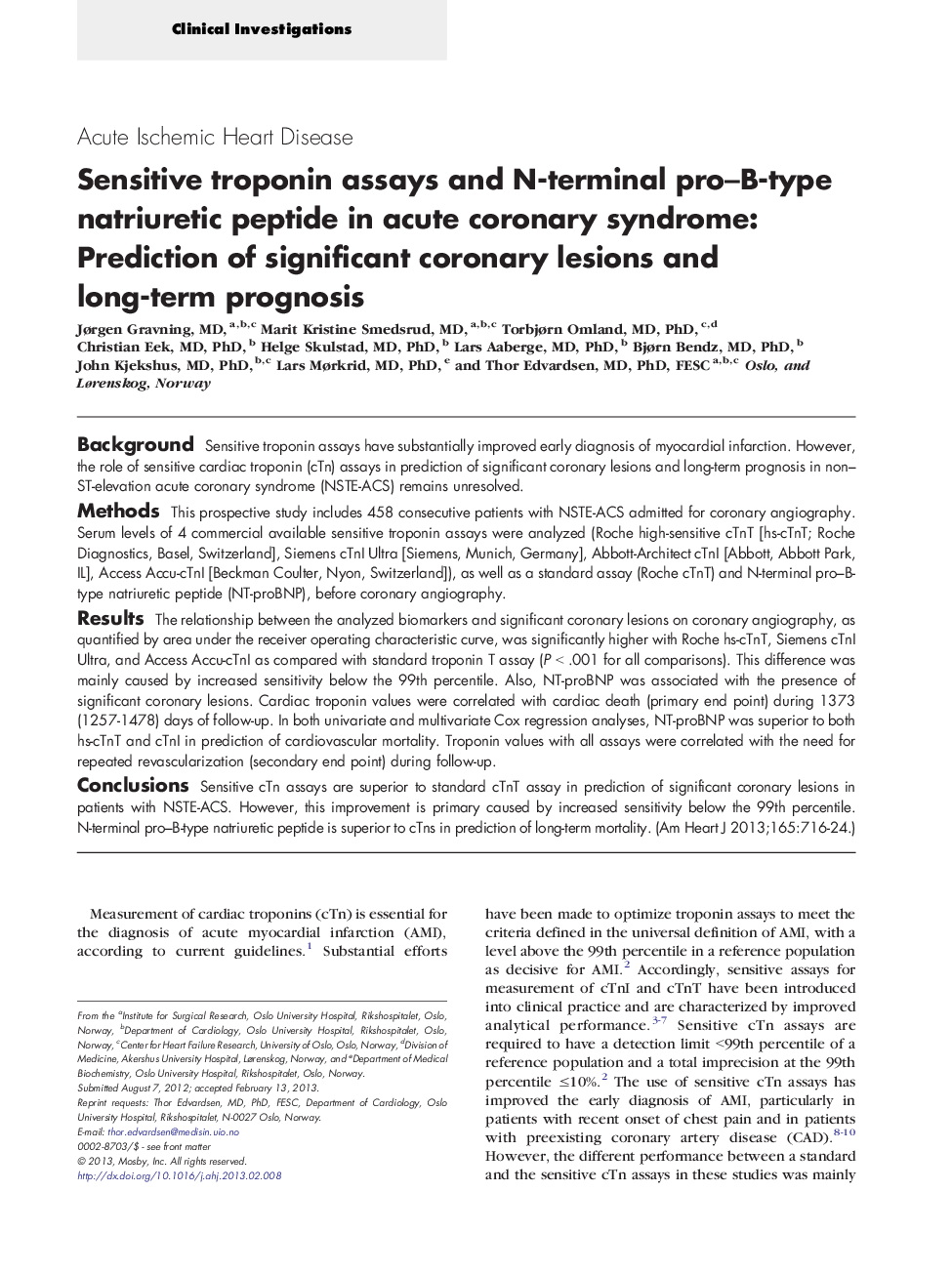| Article ID | Journal | Published Year | Pages | File Type |
|---|---|---|---|---|
| 2849430 | American Heart Journal | 2013 | 9 Pages |
BackgroundSensitive troponin assays have substantially improved early diagnosis of myocardial infarction. However, the role of sensitive cardiac troponin (cTn) assays in prediction of significant coronary lesions and long-term prognosis in non–ST-elevation acute coronary syndrome (NSTE-ACS) remains unresolved.MethodsThis prospective study includes 458 consecutive patients with NSTE-ACS admitted for coronary angiography. Serum levels of 4 commercial available sensitive troponin assays were analyzed (Roche high-sensitive cTnT [hs-cTnT; Roche Diagnostics, Basel, Switzerland], Siemens cTnI Ultra [Siemens, Munich, Germany], Abbott-Architect cTnI [Abbott, Abbott Park, IL], Access Accu-cTnI [Beckman Coulter, Nyon, Switzerland]), as well as a standard assay (Roche cTnT) and N-terminal pro–B-type natriuretic peptide (NT-proBNP), before coronary angiography.ResultsThe relationship between the analyzed biomarkers and significant coronary lesions on coronary angiography, as quantified by area under the receiver operating characteristic curve, was significantly higher with Roche hs-cTnT, Siemens cTnI Ultra, and Access Accu-cTnI as compared with standard troponin T assay (P < .001 for all comparisons). This difference was mainly caused by increased sensitivity below the 99th percentile. Also, NT-proBNP was associated with the presence of significant coronary lesions. Cardiac troponin values were correlated with cardiac death (primary end point) during 1373 (1257-1478) days of follow-up. In both univariate and multivariate Cox regression analyses, NT-proBNP was superior to both hs-cTnT and cTnI in prediction of cardiovascular mortality. Troponin values with all assays were correlated with the need for repeated revascularization (secondary end point) during follow-up.ConclusionsSensitive cTn assays are superior to standard cTnT assay in prediction of significant coronary lesions in patients with NSTE-ACS. However, this improvement is primary caused by increased sensitivity below the 99th percentile. N-terminal pro–B-type natriuretic peptide is superior to cTns in prediction of long-term mortality.
